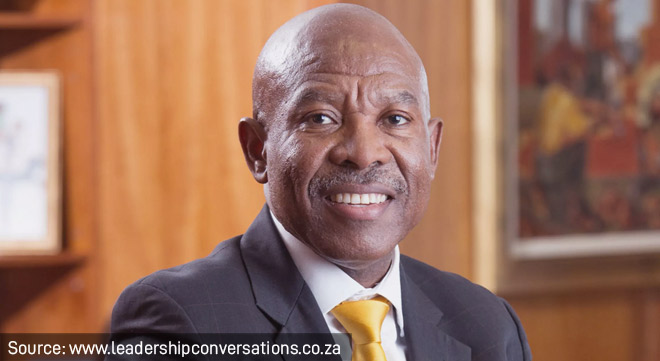The Governor of the South African Reserve Bank (SARB), Lesetja Kganyago, is concerned about the low level of trust of the country’s financial system, which is fed by misinformation and a lack of understanding.
“Unfortunately, we cannot say the public image of the financial sector is everything it should be. It was remarkable, with the allegations last year about banks manipulating the exchange rate of the rand, how ready people were to believe that there was in fact a giant conspiracy to rig the rand, and that this had seriously weakened the exchange rate, pushed up inflation and raised interest rates,” Kganyago said in his keynote address to the FSCA’s Industry-wide Conference yesterday.
“Economists and market specialists understood that even if there had been market manipulation by some traders, the macro effects of the exchange rate being a few cents weaker or stronger for an hour or so would have been trivial. The impact on inflation and rates would have been zero.
“We also saw the Competition Appeal Court rule in January that there was no evidence of a general conspiracy. But this was not the conversation taking place in the public domain. Most people could tell that traders were behaving unethically, plotting in chat rooms, and this misconduct was so obviously wrong, it eclipsed further analysis.
“What I learnt from this is that public trust in the financial system is not as deep as it needs to be. I worry about our ability to have well-informed policy conversations, in potentially more stressful circumstances, if bad analysis can get this kind of public reaction,” Kganyago said.
“Effort to bolster consumer education on the intricacies of financial regulation or financial economics are ongoing. But many people have strong opinions on the ethical questions, and especially the ethical failures. This is the stuff that can catch fire with the public. If one of these fires start, it is going to be a very difficult conversation to control, and a very difficult environment for making policy.”
He said the solution was to reduce the supply of flammable material and have early detection systems and firefighting equipment. “For our purposes, this means you need to have a financial system which treats people fairly, where misdeeds are detected, and are then dealt with promptly and effectively. If you do not have this, the system will be fundamentally unsafe.”
Kganyago said it is not possible in a democracy to have a good policy regime for protecting financial stability without an effective regime for regulating conduct.
“If people feel abused, tricked, or betrayed by the financial sector, they are not going to be interested in thoughtful technocratic proposals for obscure variables, such as liquidity coverage ratios. Their elected representatives will not be interested either. The political discussion will centre on moral outrage and that will drain the oxygen out of technocratic debates.
“You can try and push along with the technocratic work, following global best practice and debating ratios, but sooner or later the political and the technocratic worlds will need each other. You will get crises, and in crises you really need people to work together, across government, the private sector, and civil society. If you get to that point and trust has been burnt up by misconduct, good luck getting policy right.”
Grey-listing: a costly episode
Kganyago said the SARB is confident that South Africa will be removed from the Financial Action Task Force’s grey list by the next review date in 2025, “given the fixes we are implementing”.
South Africa has been designated as “high risk” partly because of poor conduct by institutions and because of the exploitation of vulnerabilities in the financial frameworks relating to the anti-money laundering regulations, he said.
Grey-listing has been “a costly episode for us. The lesson is that joint efforts are required to look after the integrity of South Africa’s financial system. We all suffer when this is compromised.”
Financial system has coped well
In his address, the governor surveyed the challenges (in addition to grey-listing) negatively impacting the financial sector – low to non-existence economic growth in South Africa, growing government debt, the surge in inflation globally, wars and geopolitical tensions.
Despite the bad news, Kganyago said the country’s financial system was resilient.
“The test of a system is how well it handles stress. You never want to see stress. But we have had a lot of it in recent years, and the good news is that the system has largely coped well.
“Capital buffers have held up. We have not seen a rise in defaults that would indicate irresponsible risky lending, or large-scale evergreening of loans designed to conceal losses – both problems experienced in various other jurisdictions where financial systems are a source of vulnerability rather than strength. The ability of the market to get through catastrophic events like Covid-19 has been clearly demonstrated.”
In March last year, Habib Overseas Bank Limited was placed under curatorship. Constantia Insurance Company Limited (CICL) faced the same fate in July 2022. Additionally, 3Sixty Life was put under provisional curatorship in December 2021.
Kganyago said the SARB’s decision to put certain institutions into curatorship recently “should be interpreted as vigilance, mitigating problems before they grow too large. In a well-regulated financial system, you are more likely to see banks being closed from time to time, rather than dysfunction being tolerated indefinitely.”



